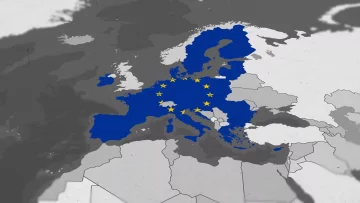Clusters, Reforms, and Concessions: Expert Explains Why the Price of Joining the EU Is So High

Political analyst Ruslan Bortnik has explained why on July 4 the EU is opening its first negotiation cluster on accession with Moldova, even though it was promised that Kyiv and Chișinău would move along this path together, Politeka reports.
He shared this insight on his blog.
“The problem is that Hungary is blocking the opening of negotiations on the first cluster between Ukraine and the European Union. And since there are no such complaints against Moldova, and it also has a strong advocate in the form of Romania, Moldova is moving ahead. We now need to resolve the issue with Hungary, and it's quite possible we’ll catch up with Moldova—or even overtake it,” Ruslan Bortnik states.
Nevertheless, he warns that EU accession could take many years. For example, Turkey has completed most of the clusters but has not succeeded in its negotiations. Bortnik also points out that accession of a new country to the EU must be ratified by the parliaments of all member states. So even if pressure is put on Hungary now, its parliament could simply refuse to ratify the agreement.
“That means we need to strike strategic agreements with Hungary, Slovakia, and Poland. And believe me, as soon as we enter cluster negotiations, more demands will start emerging: from French farmers, German truck drivers... There will be claims, claims, and more claims. Everyone will try to extract concessions and preferences from us in the framework of this negotiation process,” Bortnik explains.
According to the expert, all new EU members have gone through this process—if they had anything to offer, and Ukraine certainly does. These countries, he notes, exited negotiations without their own financial nomenclature, without their own transnational companies or major economic players, and without independent domestic or foreign policy processes for decades ahead. But, he emphasizes, that is the price of access to European investments, the common market, and the benefits of Western civilization.
Latest news:
Let's remember Politeka wrote, War in Ukraine: expert talks about the problems of the Russian army and the situation on the front.
Politeka also informed, The Armed Forces of Ukraine have begun to create "drone lines" with a 50-kilometer strike zone: Russian troops will not be able to launch offensives.
In addition, Politeka informed, Trump changes strategy: expert reveals how the US will achieve peace in Ukraine.